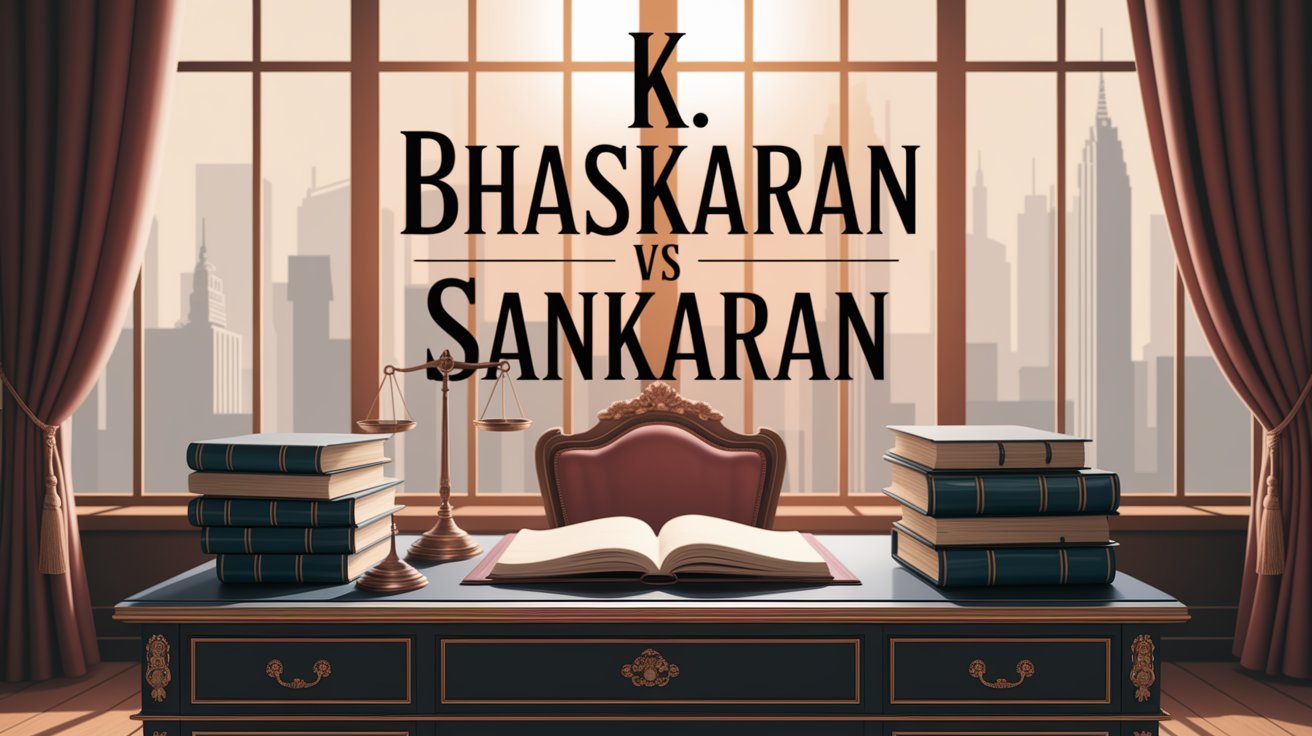K. Bhaskaran vs Sankaran 1999 (Case Summary)

This landmark case of Hon’ble Supreme Court also known as K. Bhaskaran’s case, opened the gateway of complainants in Cheque Dishonour cases to file Complaints u/s 138 of the Negotiable Instruments Act in any jurisdiction at their discretion where any act related to the offence occurred.
Table of Contents
ToggleFacts of K. Bhaskaran v. Sankaran
- Both the parties are siblings, being sons of the same parents. The Accused (K. Bhaskaran) issued a cheque of one lakh Rupees in favour of the Complainant (Sankaran). The said cheque bounced. Consequently, a return memo with remarks of “Insufficient Funds” was given by the Bank to the Complainant.
- The complainant (Sankaran) filed a complaint u/s 138 of the NI Act, which was decided in favour of the Accused by the Trial and the complaint case case was dismissed.
- The Magistrate while upholding the contention of the Accused that his court had no territorial jurisdiction to try the case as the cheque was dishonoured by the Branch office of the Bank situated in a different district.
- The complainant appealed to the Hon’ble High Court against the acquittal of the Accused. The High Court reversed the Judgment of the Trial Court and convicted the Accused.
- The Accused, thereafter, appealed to the Hon’ble Supreme Court of India contending that the trial court did not have jurisdiction to try the complaint as the cheque was dishonoured by the Branch office of the bank situated in a different district. He further contended that he did not receive the Statutory Notice u/s 138 of NI Act.
Issues framed
- Whether statutory notice under section 138 NI Act is sufficient Notice when it returns unclaimed?
- Whether the Trial court did not have Territorial Jurisdiction to try the complaint as the cheque was dishonoured by the branch office of the bank situated in a different district?
Subordinate Court Judgment
After being acquitted by the trial court, the High Court convicted the Accused and reversed the findings of the Trial Court. The Accused thereafter, appealed to the Hon’ble Apex Court.
Judgment of K. Bhaskaran v. Sankaran
The Hon’ble Supreme Court analysed section 138, 139, 118 of the Negotiable Instruments Act, 1881. The Court in order to decide the Jurisdiction analysed 177,178 and 179 of the Code of Criminal Procedure, 1973.
The court held that Dishonour of Cheque is a criminal offence and therefore, the jurisdiction shall be in consonance with Section 178 of the Code of Criminal Procedure, 1973
Section 178 of the CrPC is reiterated herein below for your reference:
- Place of inquiry or trial. —(a) When it is uncertain in which of several local areas an offence was committed, or
(b) where an offence is committed partly in one local area and partly in another, or
(c) where an offence is a continuing one, and continues to be committed in more local areas than one, or
(d) where it consists of several acts done in different local areas, it may be inquired into or tried by a Court having jurisdiction over any of such local areas
The Court Further held that the offence under Section 138 of the Act can be completed only with the concatenation of a number of acts. Following are the acts which are components of the said offence :
(1) Drawing of the cheque,
(2) Presentation of the cheque to the bank,
(3) Returning the cheque unpaid by the drawee bank,
(4) Giving notice in writing to the drawer of the cheque demanding payment of the cheque amount,
(5) failure of the drawer to make payment within 15 days of the receipt of the notice.
The Supreme Court concluded by setting up a precedent that section 178 of CrPC shall be applicable in complaint cases u/s 138 of NI Act allowing the complainant to file the complaint at any place where any of the above mentioned 5 Acts took place. This case broadened the jurisdiction and gave the Complainant immense discretion to file cases.
The ratio of this case famously called as Bhaskaran’s case was later over-ruled in the case of Dashrath Rupsingh Rathod vs State of Maharashtra & Anr on 1 August 2014.

